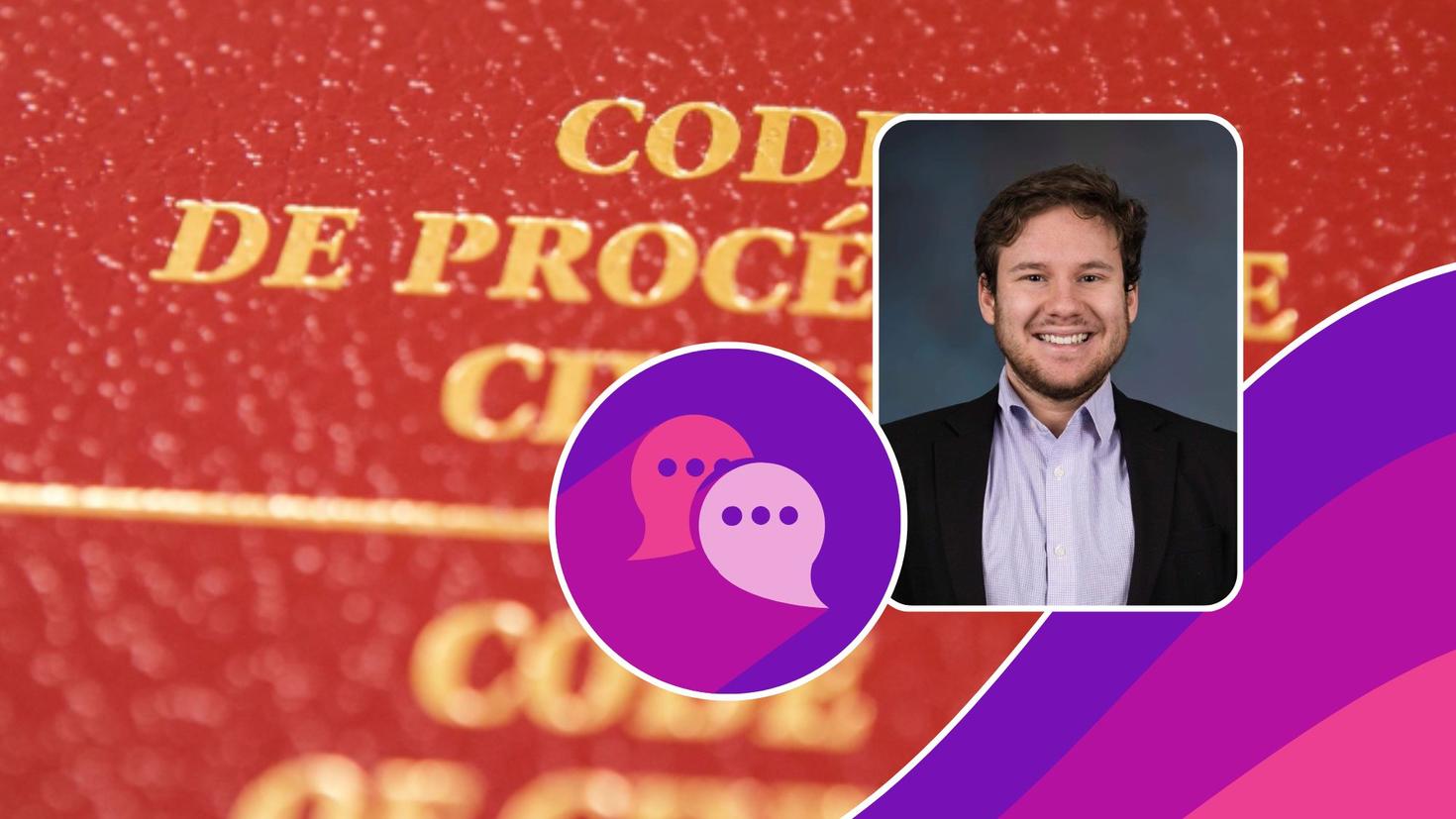Drawing on his experience as a research lawyer and driven by academic curiosity, he brings his expertise to a deep examination of the role of administrative tribunals. At the University of Ottawa, where bilingualism and bijuralism reflect the complexity of the Canadian legal landscape, he has found an ideal environment to pursue his research under the supervision of Professor Paul Daly.
His work focuses on the impact of Quebec’s 2016 reform of the Code of Civil Procedure on administrative tribunals. Often seen as dry or overly technical, these procedures nonetheless have a direct and significant effect on people’s lives. Paul-David’s research seeks to better understand how civil and administrative procedure influence each other in order to promote access to justice and support the work of courts and decision-makers.
In the following interview, he reflects on his background, inspirations, and the reach of his research.
Tell us a bit about yourself and what led you to study at the University of Ottawa.
Paul-David Chouinard: I was born in Quebec City and completed my bachelor’s and master’s degrees in law at Université Laval. After working as a research lawyer, I decided to return to full-time studies to fulfill a dream by beginning a PhD in law. My early conversations with Professor Paul Daly convinced me to undertake the doctorate under his supervision. Bilingualism and bijuralism, which are central to my research interests, are also core values at the University of Ottawa. So it felt natural to choose this university for my doctoral studies.
What is the focus of your research, and what inspired you to explore this topic?
P.-D. C.: Following the 2016 reform of Quebec’s Code of Civil Procedure, the legal landscape underwent major changes aimed at improving access to justice and promoting alternative dispute resolution. In my thesis, I aim to measure the effects of this reform on administrative tribunals in Quebec. The procedures that apply to these tribunals are rarely studied or systematized, even though they have a major impact on people’s lives. That’s what drew me to the topic: a desire to contribute to improving access to justice.

“A better understanding of the specific procedures governing different tribunals and administrative bodies is, I think, essential to guide those who work in the justice system.”
Paul-David Chouinard
What do you hope other researchers, policymakers, or practitioners take away from your work?
P.-D. C.: Civil and administrative procedure are often viewed as highly technical and dry fields. Yet I believe they deserve close attention because they have a significant impact on the administration of justice and access to it. A better understanding of the specific procedures governing different tribunals and administrative bodies is, I think, essential to guide those who work in the justice system. My research contributes to this goal by examining how civil and administrative procedure influence each other.

“Engaging with people from different backgrounds has shown me how important interdisciplinary dialogue is.”
Paul-David Chouinard
How has your experience at the University of Ottawa shaped your research journey so far?
P.-D. C.: During my PhD studies, I’ve built connections with many colleagues, students, and faculty members at the University of Ottawa. Engaging with people from different backgrounds has shown me how important interdisciplinary dialogue is. I’ve also discovered research in other fields, such as public administration, political science, and sociology, that has enriched my own work on administrative procedure and access to justice.
Have you been involved in any research centres or academic networks during your studies? If so, how have these experiences enhanced your academic journey?
P.-D. C.: From the start of my doctoral studies, I’ve had the opportunity to collaborate with the teams at the Revue générale de droit and Jurivision. Through my work with the Revue, I’m involved in various stages of the publication process, which has helped me better understand how peer-reviewed journals operate. With Jurivision, I help create visual capsules to make the journal’s articles more accessible to broader audiences. Both experiences have been extremely enriching.

“I was pleasantly surprised to discover just how much I enjoy navigating the academic world.”
Paul-David Chouinard
What has surprised or satisfied you most about your doctoral journey so far?
P.-D. C.: I was pleasantly surprised to discover just how much I enjoy navigating the academic world. Having previously been in the workforce, returning to school full-time was a bit intimidating. But those doubts faded over time as I became involved in projects and activities that have been rewarding both personally and intellectually. I have no regrets about pursuing a PhD and I truly value the freedom that academic life offers.
Have you had the opportunity to publish during your studies, and how has that experience shaped your journey?
P.-D. C.: I published my first article in the Revue générale de droit this year. At the Faculty of Law’s opening ceremony, I spoke with Professor Michelle Giroux, the Revue’s editor-in-chief, about my first publication experience. I was a bit nervous about publishing for the first time, but that spontaneous conversation turned out to be pivotal and I joined the Revue’s editorial team soon afterward.

“I’d say: trust yourself and take initiative with projects or ideas that interest you.”
Paul-David Chouinard
Do you have any advice for those considering graduate studies in law?
P.-D. C.: I’d say: trust yourself and take initiative with projects or ideas that interest you. It can be as simple as starting a conversation with a professor at an event or pursuing a topic you’re passionate about. Those seemingly small steps make the graduate experience vibrant and fulfilling and turn a master’s or doctorate into a truly rewarding journey.
